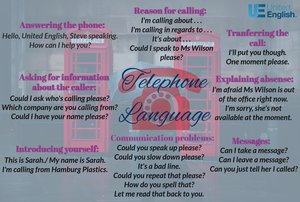Before we go any further, let me just state that I think that Google translate is amazing. You can feed an email in a foreign language into it and have something more-or-less comprehensible come out. You can visit a foreign country and make yourself understood by speaking into your phone. You can point your camera at a page covered in exotic script and be presented with a reasonably intelligible facsimile on your screen. Google translate represents a level of unfathomable genius, which for me may as well be magic.
That being said, it is not a good tool for language learners. Let me explain why:
First, it works too well. All too often, I see students typing unfamiliar phrases into Google and they are given the translation back. The student is satisfied and considers the task done, and in effect, it is. However, by using Google translate none of the mental muscles have been worked out in the process of deciphering the sentence. The student was not forced to recall some class a couple of weeks earlier where they reviewed the present perfect – as our exercises are designed to make them do. Instead, this process has been bypassed and the mental connections which should have been strengthened by the exercise are left to wither and atrophy.
Secondly, it doesn’t work well at all. Google can only process what you enter into it and in different contexts, some phrases can take on a totally different meaning. For example, when I enter get out of here into Google, I am presented with the Spanish translation sal de aquí, which while technically correct doesn’t take into account that this phrase can equally be an expression of surprise such as no way! or your kidding! Google gives no indication of this meaning here. A language learner looking for this phrase in Google would be left more confused than when they started in many cases.
Google also doesn’t work well with idioms – in the slightest. Let’s put a couple in and see what we end up with.
While kick the bucket has been translated well, I don’t think that the result for “blow your own trumpet” helps at all.
If not Google, then what?
I’m glad you asked! I’m going to suggest two alternatives which are indespensable for me when I translate documents (such as this very blog). I wholeheartedly recommend them to all of my students but with the following caveat – there is no one ideal tool. You will need to use a variety of techniques to find the answer that you are looking for in many instances.
Wordreference
During my time at university, I practically had a tab with Wordreference open in Google chrome permanently. It is the definitive online dictionary for many languages. Not only does it offer a comprehensive list of definitions in an intuitive format – along with example sentences – it contains a game-changing feature which some people may not be aware of; the forum.
If you don’t find the translation that you are looking for, scroll to the bottom of the page and it is very likely that someone has already asked the question you need the answer to. In the forums, people from all over the world chip in to offer their opinions about the best translation. By reading different suggestions, you can get a much better idea of the meaning of different words and phrases.
Linguee
Linguee is an online dictionary with a difference. It is based on a parallel corpus, which is a list of documents available in two languages. This means that you can see the ways that a specific phrase has been translated in real situations. Looking through all of the different ways to translate the same thing really shows you how complicated translating can be.
Linguee is really excellent for longer phrases, which if you translate word-for-word can cause confusion. I find it really useful for generic email phrases like please find enclosed or I hope this email finds you well. Not all of the translations are perfect so don’t just pick the first option. Check the results and choose what seems most similar to your situation.
Antes de empezar, quiero aclarar que creo que el traductor de Google es algo extraordinario. Puedes escribir presentarle algo en un idioma extranjero y saldrá algo más o menos comprensible. Te permite visitar otro país y hacerte entender por hablar a tu telefono. Diriges la cámera de tu cel a unos carácteres exóticos y se te aparecerá una copía bastante inteligible en la pantalla. Google representa un especie de genio insondable, que para mí entendimiento es igualito a brujería.
Dicho esto, no es buena herramienta para los estudiantes de idiomas. Permíteme explicar el porque:
Primero, funciona demasiado bien. Muy frecuentamente veo a mis estudiantes, al toparse con una frase desconocida, en seguida la consultan en Google y se les devuelve una traducción. El estudiente se siente satisfecho de haber cumplido su objetivo, y por cierto, lo ha hecho. No obstante, en usar el traductor de Google, sus músculos cerebrales no se han trabajado en el proceso de descifrar la oración. No se exigió a recordar alguna clase de hace pocas semanas en la cual repasó el presente perfecto (de la manera en que diseñamos los ejercicios). Al contrario, ese proceso se sorteó y las conexiones mentales que se hubieran fortalecido se dejan atrofiar.
Segundo, no funciona de todo bien. Google solo puede procesar lo que tú le entres y las frases pueden cambiar de significado mucho dependiendo del contexto. Por ejemplo, cuando introduzco get out of here, me responde con una traducción de sal de aquí, la cual, aunque tecnicamente correcta, no toma en cuenta el hecho de que esas palabras muy a menudo se usan como una manifestación de sorpresa, tipo ¡No manches!, ¡Qué va! o ¡No me tomes el pelo! dependiendo de en cuál parte del mundo hispanohablante te encuentres. Google no te da ninguna indicación de la existencia de este significado. Un estudiante de inglés buscando la frase en Google terminará más confundido de cuando empezó.
Google tampoco funciona muy bien traduciendo modismos – para nada. Probémoslo con unos a ver como le va
Aunque kick the bucket salió bien. No creo que la traducción de blow your own trumpet sirva para nada.
Si no Google, ¿entonces qué?
¡Qué buena pregunta! Voy a sugerir dos alternativas que para mí son indispensables cuando traduzco documento (como este blog). Se las recomiendo ampliamente a todos mis estudiantes, con una advertencia: No existe ninguna herramienta ideal para todos los casos. Normalemente hay que usar varias técnicas para encontrar la respuesta que buscas.
Wordreference
Durante mi tiempo en la universidad, tenía una pestaña de Google Chrome abierta con Wordreference practicamente todo el tiempo. Es el diccionario en línea definitiva para muchos idiomas. No solamente ofrece una lista exhaustiva de definiciones en un formato fácil de entender (con oraciones de ejemplo) también cuenta con un elemento revolucionario; los foros.
En el caso de que no encuentres la traducción que buscas, baja hasta debajo de las traducciones y verás una lista de ligas. Es muy probable que alguien ya preguntó lo que necesitas saber. En los foros, gente de todo el mundo participa ofreciendo su opinión sobre la traducción perfecta. Leyendo las sugerencias, llegas a entender mucho mejor cómo se usan las palabras en otro idioma.
Linguee es un diccionario distinto. Es basado en un corpus paralelo, que es una lista de documentos ya traducidos en otros idiomas. Esto significa que puedes ver las maneras en que una frase especifica se ha traducido en situaciones reales. Explorando las formas en que la misma cosa se puede traducir conforme al contexto, entiendes lo complicado que puede ser la traducción.
Linguee es excelente cuando buscas frases más largas, que no se pueden traducir palabra por palabra. Para mi ha resultado ser muy útil traduciendo frases típicas de correos electrónicos como: Nótese que se adjunta o espero que esta carta la encuentre bien. No todas las traducciones son perfectas asi qe no elijas la primera que sale. Revisa bien los resultado y escoge la que más se relacione al contexto en que estés traduciendo.











